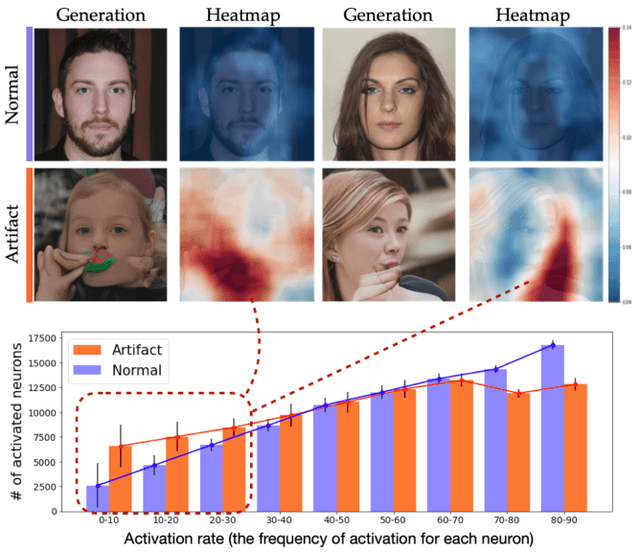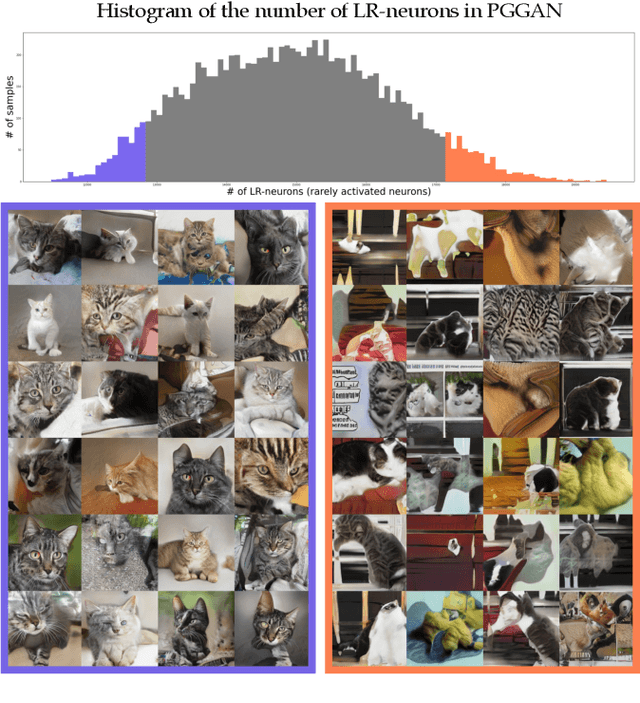Can We Find Neurons that Cause Unrealistic Images in Deep Generative Networks?
Paper and Code
Jan 20, 2022



Even though image generation with Generative Adversarial Networks has been showing remarkable ability to generate high-quality images, GANs do not always guarantee photorealistic images will be generated. Sometimes they generate images that have defective or unnatural objects, which are referred to as 'artifacts'. Research to determine why the artifacts emerge and how they can be detected and removed has not been sufficiently carried out. To analyze this, we first hypothesize that rarely activated neurons and frequently activated neurons have different purposes and responsibilities for the progress of generating images. By analyzing the statistics and the roles for those neurons, we empirically show that rarely activated neurons are related to failed results of making diverse objects and lead to artifacts. In addition, we suggest a correction method, called 'sequential ablation', to repair the defective part of the generated images without complex computational cost and manual efforts.
 Add to Chrome
Add to Chrome Add to Firefox
Add to Firefox Add to Edge
Add to Edge